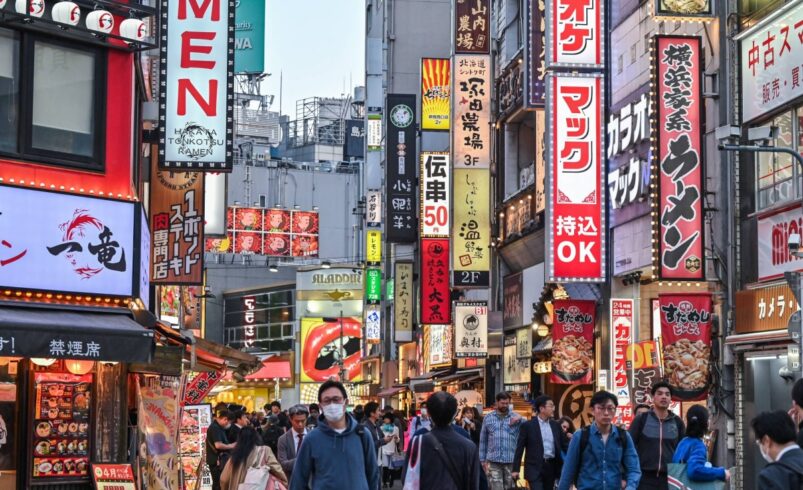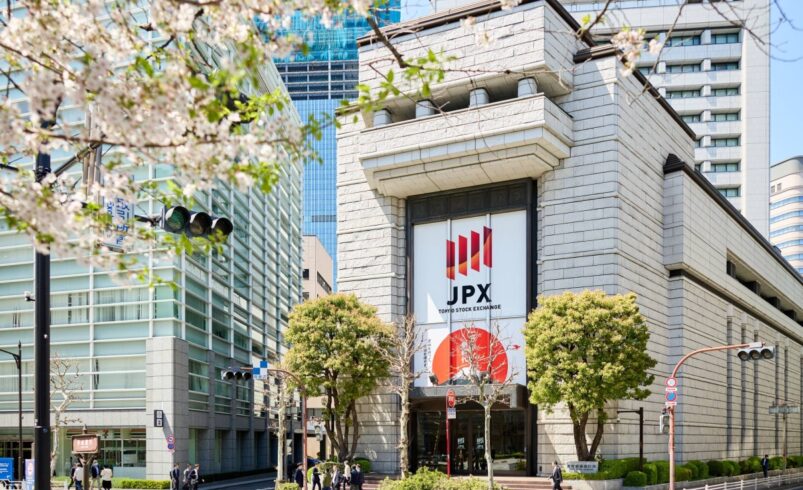
Investing in Japan Property: Navigating Market & Strategies for Profitable Results 2025
Investing in real estate is a time-tested strategy for building wealth, and for many global investors, Japan presents a uniquely compelling opportunity. The country’s stable political climate, robust legal framework, and a real estate market that has shown significant resilience and growth make investing in Japan property an attractive prospect. This guide provides a detailed overview of the current market, the advantages for foreign investors, and a step-by-step process for making a successful investment.
Why Consider Investing in Japan Property?
The Japanese real estate market offers several key benefits that make it stand out. While some markets are known for their volatility, Japan’s is characterized by its stability. This is underpinned by strong demand in major metropolitan areas, a landlord-friendly legal system, and low-interest-rate environments. For those seeking a long-term, reliable investment, investing in Japan property can be an excellent choice.
Market Stability and Appreciation Potential
After decades of stagnation, the Japanese real estate market has entered a new phase of growth. Nationwide land prices have been on the rise for several consecutive years, with major cities like Tokyo, Osaka, and Fukuoka leading the charge. While the rate of appreciation may be moderating from its peak, analysts project continued, healthy growth for the foreseeable future. This suggests that investors can anticipate both steady rental income and the potential for capital appreciation on their assets.
Favorable Conditions for Foreign Investors
One of the most significant advantages of investing in Japan property is the country’s welcoming stance toward foreign ownership. Unlike many other nations, Japan has virtually no legal restrictions on foreigners buying real estate. You do not need to be a Japanese citizen or have a specific visa to purchase land or a building. This open-door policy, combined with a historically weak yen, has created a favorable environment for international buyers, effectively providing them with a significant discount on their purchases.
Diversification and Inflation Hedge
Real estate generally has a low correlation with other global markets, making it an excellent tool for portfolio diversification. The Japanese market, in particular, is mature and well-regulated, which helps to mitigate risk. Furthermore, real estate is a tangible asset that tends to increase in value during inflationary periods. With Japan having experienced its highest inflation in decades, owning property offers a powerful hedge against the devaluation of currency.
Navigating the Japanese Real Estate Market: Key Trends and Opportunities
The Japanese real estate landscape is dynamic and offers a variety of investment opportunities. A deep understanding of market trends is essential for making an informed decision.
The Urban Center Advantage
Major urban centers remain the primary focus for most investors. Tokyo is the undisputed leader, with its dense population, strong economy, and consistent demand for both residential and commercial properties. The city’s prime wards, such as Minato, Chiyoda, and Chuo, are the most sought-after and command the highest prices, but also offer the greatest potential for stability and appreciation. However, other cities are also proving to be hotbeds for investment. Osaka, with its upcoming World Expo, and Fukuoka, with its burgeoning tech scene, have both seen significant price growth and are considered excellent alternatives. When investing in Japan property, focusing on these key urban areas is a strategy that many successful investors adopt.
The Rise of “Akiya” and Rural Investments
While urban properties offer stability, there is a growing and unique opportunity in Japan’s rural areas: “akiya,” or vacant and abandoned homes. Due to demographic shifts and a declining population in some regions, a large number of these homes are available for a fraction of their value. The government has even implemented programs to connect buyers with these properties and offer renovation subsidies. While this type of investment requires a different approach and a higher tolerance for risk, it can yield significant returns for those willing to restore and manage the properties.
The Importance of New vs. Old
A distinct cultural preference in Japan is the high demand for “new” construction. This preference impacts both rental rates and resale values. Newly built condominiums, for example, often sell out through lottery systems. While older properties can be purchased at a lower price and offer higher rental yields, they may be more challenging to resell. Understanding this dynamic is crucial for setting clear investment goals, whether they are focused on cash flow from rental income or capital gains from appreciation.
The Step-by-Step Process for Foreign Investors
The process of investing in Japan property is straightforward, but it requires careful planning and the right professional support.
Step 1: Research and Goal Setting
Before you begin, it’s essential to define your investment goals. Are you looking for a long-term rental property, a vacation home, or a high-growth capital asset? Your goals will influence everything from your budget to your preferred location and property type. It’s also critical to research the market thoroughly. Online platforms and real estate blogs are excellent starting points, but nothing beats the expertise of a local real estate agent.
Step 2: Securing Financing
One of the biggest hurdles for non-resident foreign investors can be securing a loan from a Japanese bank. While some institutions are becoming more open to international borrowers, a significant challenge remains. Many foreign investors opt to pay in cash or secure financing from a bank in their home country. For foreign residents, especially those with permanent residency, obtaining a loan is much more feasible. In any case, it is advisable to get a pre-approval from a financial institution before you start looking at properties.
Step 3: Finding and Vetting a Real Estate Agent
A reliable, English-speaking real estate agent is your most valuable asset when investing in Japan property. They will guide you through the entire process, from property search and viewing to negotiations and legal paperwork. They can also connect you with other essential professionals, such as judicial scriveners, who are required for the property registration process. Look for an agent with a proven track record of working with international clients.
Step 4: The Offer and Contract Phase
Once you find a suitable property, you will submit a formal offer. This will typically be followed by a comprehensive property inspection and a detailed review of the “Explanation of Important Matters,” a document that outlines all relevant information about the property, including its condition, any existing mortgages, and local regulations. After negotiations are complete, you will sign a purchase agreement and pay a deposit, usually 5-10% of the purchase price.
Step 5: Final Settlement and Registration
The final settlement takes place at the bank with the seller and a judicial scrivener. You will pay the remaining balance and all associated fees. The judicial scrivener will then handle the official registration of the property transfer. While all contracts and legal documents will be in Japanese, your agent should provide translations for your reference.
Understanding the Costs and Tax Implications

Beyond the purchase price, there are a number of other costs and taxes to consider when investing in Japan property.
Initial Costs
When budgeting for a property purchase, you should set aside an additional 5-10% of the purchase price to cover various fees and taxes. This includes a real estate agent’s commission (typically 3% of the price plus a fixed fee), registration fees, stamp duties, and a property acquisition tax.
Ongoing Costs and Taxes
Once you own the property, you’ll be responsible for annual property taxes (fixed asset and city planning tax), which are relatively low compared to many other countries. You may also incur expenses for maintenance, repairs, and, if you are not managing the property yourself, management fees (typically 5-10% of the rental income).
Tax on Rental and Capital Gains
Rental income from your property is subject to income tax in Japan. The rate can be as high as 20.42%, but this can often be reduced through various deductions, including depreciation. When you sell the property, you will be subject to a capital gains tax. The rate is significantly lower for properties held for more than five years. It’s important to consult with a tax professional who is familiar with both Japanese and your home country’s tax laws to understand your full tax obligations.
The J-REIT Alternative: A Path to Passive Investment
For investors who want to participate in the Japanese real estate market without the complexities of direct property ownership and management, Japanese Real Estate Investment Trusts, or J-REITs, offer a highly accessible alternative. J-REITs are trusts that pool capital from multiple investors to acquire, manage, and operate a portfolio of income-generating properties. These are listed on the Tokyo Stock Exchange, allowing investors to buy and sell shares with the same ease as trading stocks, providing a level of liquidity that is impossible with direct property purchases. This is particularly beneficial for foreign investors who might face greater challenges in securing a loan or managing a physical property from abroad. By law, J-REITs are required to distribute at least 90% of their taxable income as dividends, making them an excellent source of stable, passive income. Investing in J-REITs offers a way to diversify your portfolio, gain exposure to various property types (such as office buildings, commercial facilities, and hotels), and benefit from the expertise of professional asset managers, all without the significant capital and logistical challenges of owning a physical asset.
In conclusion, investing in Japan property presents a compelling mix of stability, growth potential, and a welcoming environment for foreign investors. With the right strategy and professional guidance, you can successfully navigate this market and add a valuable asset to your portfolio.













